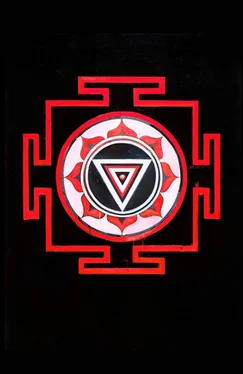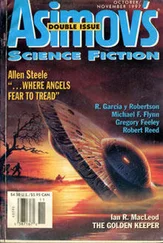He didn’t look up or acknowledge us as we passed through what seemed to be his living room.
We walked on into an even darker lane, turned the last corner in the maze and emerged in a wide, open, sunlit courtyard.
I’d heard of it before: it was called Das Rasta , or Ten Ways . Residential buildings and the many lanes that serviced them surrounded the roughly circular courtyard, open to the sky. It was a private public square.
Residents leaned from windows, looking down into the action of Das Rasta. Some lowered or pulled up baskets of vegetables, cooked food, and other goods. Many more people entered and left the courtyard through wheel-spoke alleys leading to the wider world beyond.
In the centre of the courtyard, sacks of grain and pulses had been heaped together in a pile twice the height of a man. The sacks formed a small pyramid of thrones, and seated on them at various levels were the Cycle Killers.
In the topmost improvised throne was Ishmeet, the leader. His long hair had never been cut, according to Sikh religious tradition, but his observance of Sikhism stopped there.
His hair wasn’t held in a neat turban, but fell freely to his narrow waist. His thin, bare arms were covered in tattoos, depicting his many murders and gang war victories. There were two long, curved knives in decorated scabbards tucked into the belt of his tight jeans.
‘ Salaam aleikum ,’ he said lazily, greeting Abdullah as we approached his tower of thrones.
‘ Wa aleikum salaam ,’ Abdullah replied.
‘Who’s the dog-face you’ve got with you?’ a man sitting close to Ishmeet asked in Hindi, turning his head to spit noisily.
‘His name is Lin,’ Abdullah replied calmly. ‘They also call him Shantaram. He was with Khaderbhai, and he speaks Hindi.’
‘I don’t care if he speaks Hindi, Punjabi and Malayalam,’ the man responded in Hindi, glaring at me. ‘I don’t care if he can recite poetry, and if he has a dictionary shoved up his arse. I want to know what this dog-face is doing here.’
‘I’m guessing you have more experience with dogs than I do,’ I said in Hindi. ‘But I came here in the company of men, not dogs, who know how to show respect.’
The man flinched and twitched, shaking his head in disbelief. I wasn’t sure if it was because of the challenge I’d thrown, or the fact that a white foreigner had spoken it in the kind of Hindi used by street gangsters.
‘This man is also my brother,’ Abdullah said evenly, staring at Ishmeet. ‘And what your man says to him, he says to me.’
‘Then why don’t I say it to you, Iranian?’ the man said.
‘Why don’t you, by Allah?’ Abdullah replied.
There was a moment of exquisite calm. Men working to bring sacks of grain, pots of water, boxes of cold drinks, bags of spices and other goods still moved into and out of the courtyard. People still watched from their windows. Children still laughed and played in the shade.
But in the breathing space between the Cycle Killers and the four of us, a meditation stillness rippled outwards from our beating hearts. It was the deliberate stillness of not reaching for our weapons, the shadow before the flash of sunlight and blood.
The Cycle Killers were only a word away from war, but they respected and feared Abdullah. I looked into Ishmeet’s smiling eyes, schemed into slits. He was counting the corpses that would lie around his throne of sacks.
There was no doubt that Abdullah would kill at least three of Ishmeet’s men, and that the rest of us might account for as many again. And although there were twelve Cycle Killers in the courtyard, and several more in the rooms beyond, and although Ishmeet himself might manage to live, the loss would be too great for his gang to survive a revenge attack by our gang.
Ishmeet’s eyes opened a little wider, crimson betel nut staining his smile.
‘Any brother of Abdullah,’ he said, staring directly at me, ‘is a brother of mine. Come. Sit up here, with me. We’ll drink bhang together.’
I glanced at Abdullah, who nodded to me without taking his eyes off the Cycle Killers. I climbed onto the wide throne of sacks and took a seat a little below Ishmeet, and level with the man who’d insulted me.
‘Raja!’ Ishmeet said, calling to a man who was polishing the rows of already gleaming bicycles. ‘Get some chairs!’
The man moved quickly to provide wooden stools for Abdullah, Fardeen, and Hussein. Others brought the pale green bhang in tall glasses, and also a large chillum.
I drank the glass of marijuana milk down in gulps, as did Ishmeet. Belching loudly, he winked at me.
‘Buffalo milk,’ he said. ‘Fresh pulled. Gives a little extra kick. You want to be a king in this world, man, keep your own milking buffalo.’
‘O… kay.’
He lit the chillum, took two long puffs, and passed it to me, smoke streaming from his nostrils like steam escaping from fissured stone.
I smoked and passed the chillum to the gang lieutenant sitting beside me. The animosity of moments before was gone from his smiling eyes. He smoked, passed the chillum along, and then tapped me on the knee.
‘Who’s your favourite heroine?’
‘From now, or before?’
‘From now.’
‘Karisma Kapoor.’
‘And from before?’
‘Smita Patil. What about you?’
‘Rekha,’ he sighed. ‘Before and now and always. She’s the queen of everything. Do you have a knife?’
‘Of course.’
‘Can I see it, please?’
I took one of my knives out of its scabbard, and passed it to him. He opened the flick mechanism expertly, and then flipped the long, heavy, brass-handled weapon around his fingers as if it was a flower on a stem.
‘Nice knife,’ he said, closing it and handing it back to me. ‘Who made it?’
‘Vikrant, in Sassoon Dock,’ I answered, putting the knife away.
‘Ah, Vikrant. Good work. You wanna see my knife?’
‘Sure,’ I replied, reaching out to take the weapon he offered me.
My long switchblade knife was made for street fighting. The Cycle Killer’s knife was designed to leave a deep, wide hole, usually in the back. The blade tapered quickly from the wide hilt to the tip. Gouged into the blade were trenches to facilitate the flow of blood. Backward serrations entered a body on the smooth side but ripped the flesh on the outward pull, preventing the wound from spontaneously closing.
The hilt was a brass semicircle, designed to fit into a closed fist. The knife was used in a punching action, rather than a slash or jab.
‘You know,’ I said, as I handed back the weapon, ‘I hope we never, ever fight each other.’
He grinned widely, putting the knife back into its scabbard.
‘Good plan!’ he said. ‘No problem. You and me, we never fight. Okay?’
He offered me his hand. I hesitated a moment, because gangsters take stuff like that seriously, and I wasn’t sure that I could promise not to fight him, if our gangs became enemies.
‘What the hell,’ I said, slapping my palm into his, and closing my fingers in a firm handshake. ‘We never fight. No matter what.’
He grinned at me again.
‘I’m… ’ he began in Hindi. ‘I’m sorry about… about that comment before.’
‘It’s okay.’
‘Actually, I like dogs,’ he said. ‘Anyone here will tell you that. I even feed the stray dogs here.’
‘It’s okay.’
‘Ajay! Tell him how much I like dogs!’
‘Very much,’ Ajay said. ‘He loves dogs.’
‘If you don’t stop talking about dogs right now,’ Ishmeet said through the sliver of a smile, ‘I’m going to kick you in the neck.’
Ishmeet turned away from his man, displeasure a crown pressed on his forehead.
Читать дальше












